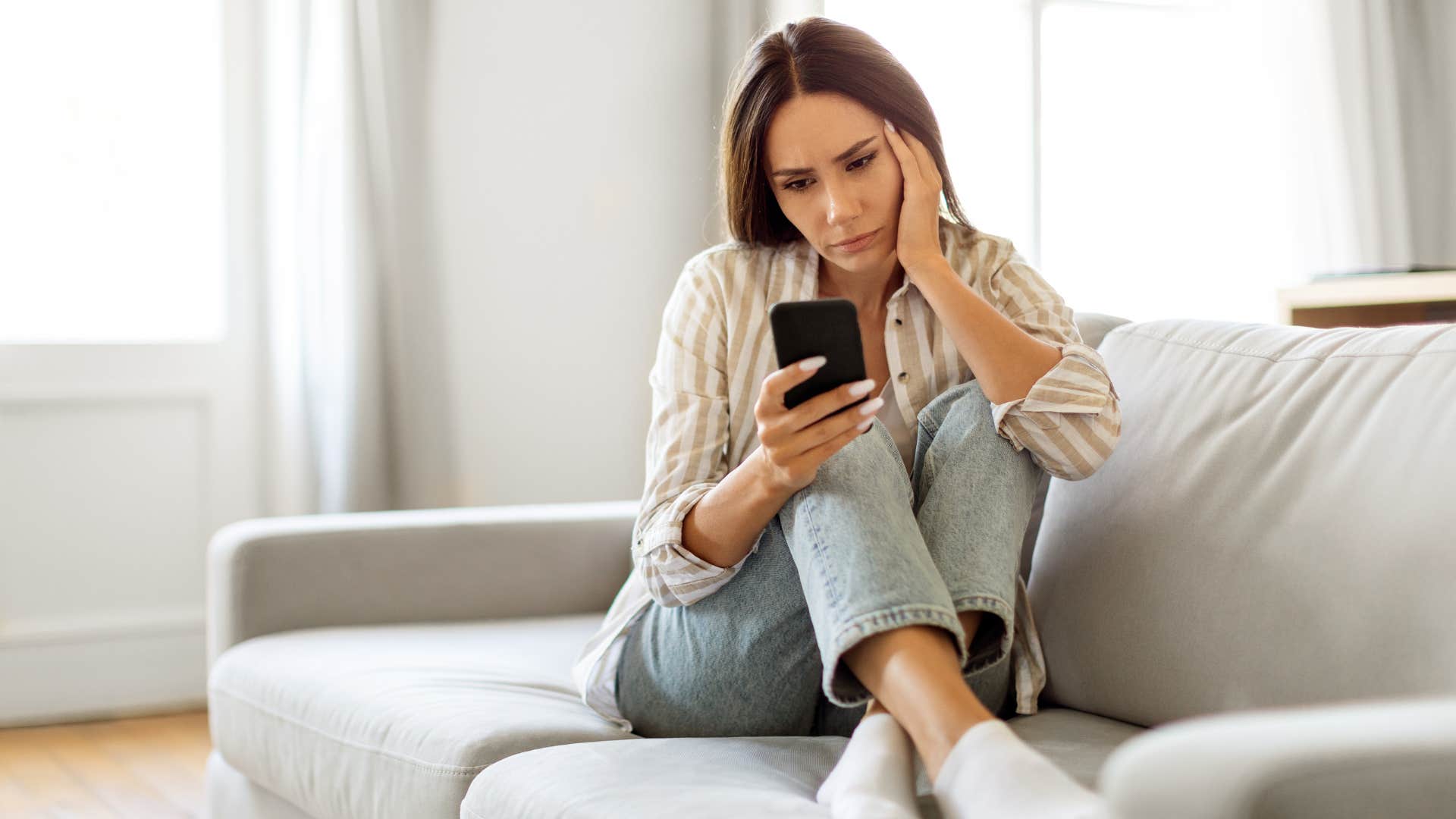Ever notice how saying “no” feels like trying to dodge Mercury in retrograde — awkward, anxiety-inducing, and somehow destined to mess with your vibe? Yet, here’s the kicker: saying “no” isn’t rude or selfish. Nope, it’s actually the ultimate power move. It’s like telling the universe, “Hey, my time and energy aren’t yours to borrow.” In a world that pushes us to say “yes” till we drop, learning to reject politely — without drowning in guilt — is nothing short of revolutionary. So, if you’ve ever felt like your “no” comes with an invisible side of dread, you’re not alone. Let’s break down how to flip that script and embrace the freedom that comes with owning your boundaries. Trust me, your stars (and sanity) will thank you. LEARN MORE.
Why is it hard to say “no?” There’s a cultural misconception that saying “no” is rude or selfish. Truthfully, it’s neither of those things.
Saying “no” is refusing to sacrifice something you love for someone else. It means that you’re in control of your own time and emotions. That makes you more generous than someone who always does what others want them to do.
Giving your body the break it needs is not selfish, it’s self-care. But saying “no” isn’t always easy. Sometimes, we feel guilty when we say “no” or are worried others will be mad or disappointed.
Advertisement
Do you ever feel anxious about how people might react to your rejection? Reduce your guilt and anxiety about saying “no.” Choose the ones that sound appealing to you and try them out throughout your day. You’ll feel amazing when you do.
 Prostock-studio / Shutterstock
Prostock-studio / Shutterstock
Are you blaming yourself for the way you feel? Are you the only one who feels guilty? Do other people find your decision to say no to be reasonable, helpful, or polite? You can tell once you’ve identified it.
If you find that other people are often angry with what you’re doing, or if they seem insincere and judgmental when they ask you about your plans, then there might be some dysfunction in your relationship with those people.
If that’s the case, it might be time to take a break from those relationships. Clear away enough emotional clutter so you can see clearly what’s happening in each of them.
Advertisement
 fizkes / Shutterstock
fizkes / Shutterstock
Saying “no” to someone in some way or another is a very generous thing to do. When you say “no” to someone else, you’re saying “yes” to yourself, because you’re making room for something more important to you. So it’s a kind of sacrifice — and it’s very worth it.
In most cases, if you have the opportunity to say “no,” it’s because you’re permitting yourself to do something more meaningful and exciting, like working on your projects, spending time with friends, or trying out a new hobby.
Research on growth mindsets suggests that embracing challenges, including rejection, as opportunities for learning and improvement can foster resilience and lead to better outcomes. Viewing rejection as redirection or a chance to learn helps people perform better and motivates persistence.
Advertisement
 Yuri A / Shutterstock
Yuri A / Shutterstock
It’s okay to do things differently from other people. It’s okay to say “no” to them, too. Everyone has different goals, opinions, and priorities in life — that’s a good thing!
When you compare yourself to others or make assumptions about how they feel and act, you lose touch with your feelings and intentions. You start feeling guilty because you think they’re better than you somehow, but letting go of comparisons helps you see everyone more objectively and clearly.
Advertisement
 JLco Julia Amaral / Shutterstock
JLco Julia Amaral / Shutterstock
Sometimes when you say “no,” it’s because your own needs are not being met by the requests you face every day. When you’re sick or tired, it’s hard to do much of anything.
So if you find yourself saying “no” to plans because you’re not feeling well, you might want to ask yourself a few questions.
Are there ways you can take care of your health without sacrificing your own desires? Will people understand if you suggest postponing the plans and just taking some time for yourself? The answers to these questions highlight the importance of self-care.
Saying no as an act of self-care is a way to set boundaries, protect one’s time and energy, and maintain mental and emotional well-being by avoiding burnout and overcommitment. This practice allows individuals to prioritize their needs, feel more in control of their lives, and foster self-respect and confidence, according to experts.
Advertisement
 Perfect Wave / Shutterstock
Perfect Wave / Shutterstock
Sometimes, people get angry or upset when you turn them down. They might say you’re being selfish, but they might not mean it. They might simply be frustrated.
Think about the big picture. What’s the source of this frustration? What are they trying to get out of you? Are their expectations realistic?
It’s helpful to take a step back and look at the entire situation rather than just focusing on one particular instance. You could even talk it over with close friends and family — they might have some insight into what’s really going on for this person or why they’re so attached to this particular request.
Advertisement
 Gorgev / Shutterstock
Gorgev / Shutterstock
It’s essential to be reasonable when you turn people down. Explain to that person what you can manage without losing your integrity or making them feel bad about themselves.
Remember that it’s okay to change your mind about plans in the future, just like you learn more about your boundaries and needs as time goes on, you can also change them.
Research has found that by approaching saying no with reasonable explanations, respect for the other person, and a commitment to personal well-being, these situations can be navigated effectively while maintaining positive relationships and minimizing negative consequences.
Advertisement
 BearFotos / Shutterstock
BearFotos / Shutterstock
Saying “no” is a skill and, like any other skill, it takes practice. Sometimes, you might find yourself saying “yes” when, deep down, you feel like saying “no,” so you might want to consider how strong your intentions are.
Try saying “no” on purpose rather than by mistake. Then, take a few deep breaths before you get in tight with another person. Make sure you’re not holding back because you’re afraid of the repercussions of your decision.
Advertisement
 Antonio Guillem / Shutterstock
Antonio Guillem / Shutterstock
Don’t use “no” as a weapon against people or to punish them for something they had nothing to do with. Sometimes, others want to say “no” because they’re selfish or self-absorbed, so it’s important to respond gently and compassionately rather than cruelly or sarcastically.
When you’re saying “no” to someone else, keep your motivations in mind. A 2022 study concluded that the ideal approach for saying no will vary depending on the situation and your relationship with the other person. Saying yes when you don’t mean it can lead to resentment, annoyance, and showing up as less present, which can damage relationships in the long run.
Advertisement
 Yuri A / Shutterstock
Yuri A / Shutterstock
Saying “no” can be challenging, and it’s okay if you don’t feel like you have a lot of control over how other people behave when they get upset with you for turning them down. What matters is how you handle it.
Do you get angry or anxious? Do you want to say “no” but avoid doing so because of guilt or shame? Most importantly, do you treat yourself kindly and with respect?
When you judge yourself harshly for things you’ve done, you prevent yourself from changing your behavior for the better.
Advertisement
 fizkes / Shutterstock
fizkes / Shutterstock
Saying “yes” to other people can sometimes lead you to feel more distant from yourself. Set some time aside for yourself, and learn how to be kinder with your own needs and desires.
If you say “no” in a healthy way for you, others will respect you more for it and respect themselves more for respecting your decisions. Giving and receiving are a balance of power.
Saying “no” when you need to is an expression of autonomy — it’s about making your own decisions based on what you truly desire, rather than on what’s expected of you by others.
Giving does not have to mean doing for others; it can also mean listening to your inner self and living the life you want to live.
In the end, expressing your power and taking control over your own life is what makes you feel confident. When you learn how to say “no” without feeling guilty, you’re often saying “yes” to something more substantial: absolute freedom and autonomy.
Dr. Leda Kaveh is a licensed clinical psychologist and the owner/director of Washington Psychological Wellness, a boutique-style mental health clinic located in Gaithersburg, Maryland. She has specialized knowledge and training in individual, adult, adolescent, child, couples, and family therapy and the treatment of various mental health concerns.
Advertisement
Auto Amazon Links: No products found.

This will close in 0 seconds
This will close in 0 seconds